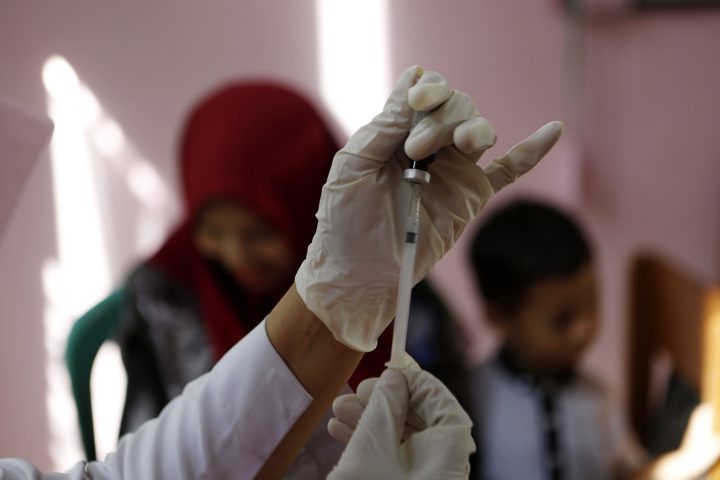Indonesia’s top Muslim authority has issued a fatwa against the measles vaccine, declaring it religiously forbidden but leaving room for its use out of necessity.

The Indonesian Ulema Council (MUI) says the country’s measles and rubella vaccine contains ingredients derived from pigs, which are forbidden in Islam.
However, the organization says Muslims in the country can continue to use the vaccine until a religiously acceptable, or halal, version can be developed, because of the risks involved with not being vaccinated.
“There is information from experts who are competent and trusted about the dangers caused by not being immunized,” Dr. H. Hasanuddin, chair of MUI’s fatwa commission, wrote in the fatwa.
A fatwa is a pronouncement on Islamic law handed down by a recognized authority.
The MUI fatwa is also calling for the Indonesian government to “guarantee the availability of halal vaccines” in the future, and to pressure its current supplier, the Serum Institute of India, to move away from using religiously prohibited ingredients.
The Serum Institute of India has not responded to a Global News request for comment.
Indonesia is home to the world’s largest Muslim population, with more than 87 per cent of its citizens identifying as Muslim, according to the Pew Research Center.
The MUI holds considerable sway in Indonesia, including the power to certify halal products. Its leader, Ma’ruf Amin, is running for vice-president of Indonesia alongside the incumbent president, Joko “Jokowi” Widodo.
“If there’s a MUI fatwa opposing [the vaccine], that will be a real obstacle to public health efforts,” Professor Tim Lindsey, director of the Centre for Indonesian Law at the University of Melbourne, told Australia’s ABC News.
Some measles vaccines contain hydrolyzed gelatin, a watered-down substance derived from pig or cow tissue. The gelatin is used to protect live viruses against temperature fluctuation, according to the University of Oxford’s Vaccine Knowledge Project.
Gelatin in vaccines has occasionally been a point of contention among devout members of the Jewish and Muslim faiths, which prohibit consumption of pigs.
However, more than 100 top Islamic scholars declared in 1995 that gelatin was sufficiently purified for use in vaccines, after discussing the matter at a seminar held by the Islamic Organization for Medical Sciences in Kuwait.
Canada’s provincial public health bodies often cite this seminar in explaining why it’s safe for devout Muslims to use measles vaccines.
“Scholars from the Muslim and Jewish faiths have determined that receipt of gelatin in vaccines is permissible and does not constitute a violation of religious practice,” British Columbia’s Centre for Disease Control says on its immunization website.
The Public Health Agency of Canada recommends all infants receive the measles, mumps and rubella vaccine after their first birthday. Some versions of the vaccine contain gelatin while others do not, according to the Canadian government’s website.
Measles is a highly contagious respiratory disease that can spread through the air, and through coughing and sneezing. The virus also survives on surfaces outside the body for up to two hours.
Symptoms include a rash and fever, and in rare cases, it can be deadly, according to the U.S. Centers for Disease Control and Prevention.
Statistics from the World Health Organization show cases of measles in Indonesia have plunged significantly amid a multi-year push to vaccinate more children. Officials have confirmed 1,507 cases in the first half of this year, compared to 11,389 through all of 2017.
The government aims to reach 95 per cent immunization coverage by 2020.





Comments